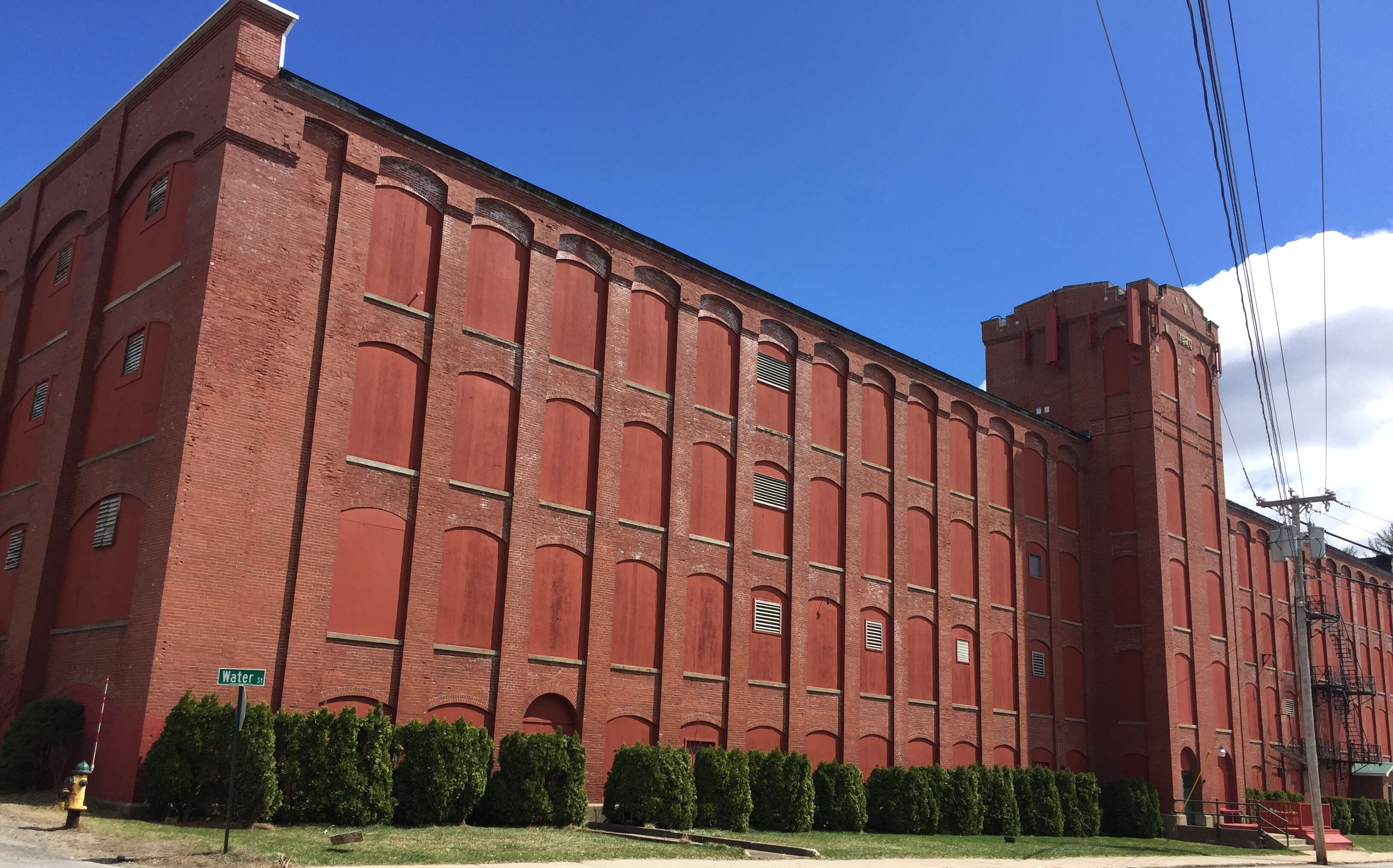
Processing Your Payment
Please do not leave this page until complete. This can take a few moments.
- News
-
Editions
-
- Lists
-
Viewpoints
-
Our Events
-
Event Info
- Women's Leadership Forum 2025
- On the Road with Mainebiz in Bethel
- Health Care Forum 2025
- On The Road with Mainebiz in Greenville
- On The Road with Mainebiz in Waterville
- Small Business Forum 2025
- Outstanding Women in Business Reception 2025
- On The Road with Mainebiz in Bath
- 60 Ideas in 60 Minutes Portland 2025
- 40 Under 40 Awards Reception 2025
- On The Road with Mainebiz in Lewiston / Auburn
- 60 Ideas in 60 Minutes Bangor 2025
Award Honorees
- 2025 Business Leaders of the Year
- 2024 Women to Watch Honorees
- 2024 Business Leaders of the Year
- 2023 NextUp: 40 Under 40 Honorees
- 2023 Women to Watch Honorees
- 2023 Business Leaders of the Year
- 2022 NextUp: 40 Under 40 Honorees
- 2022 Women to Watch Honorees
- 2022 Business Leaders of the Year
-
-
Calendar
-
Biz Marketplace
- News
- Editions
- Lists
- Viewpoints
-
Our Events
Event Info
- View all Events
- Women's Leadership Forum 2025
- On the Road with Mainebiz in Bethel
- Health Care Forum 2025
- On The Road with Mainebiz in Greenville
- On The Road with Mainebiz in Waterville
- + More
Award Honorees
- 2025 Business Leaders of the Year
- 2024 Women to Watch Honorees
- 2024 Business Leaders of the Year
- 2023 NextUp: 40 Under 40 Honorees
- 2023 Women to Watch Honorees
- 2023 Business Leaders of the Year
- + More
- 2022 NextUp: 40 Under 40 Honorees
- 2022 Women to Watch Honorees
- 2022 Business Leaders of the Year
- Nomination Forms
- Calendar
- Biz Marketplace
Fourth-generation spinning operation sells Springvale mill to NH developer
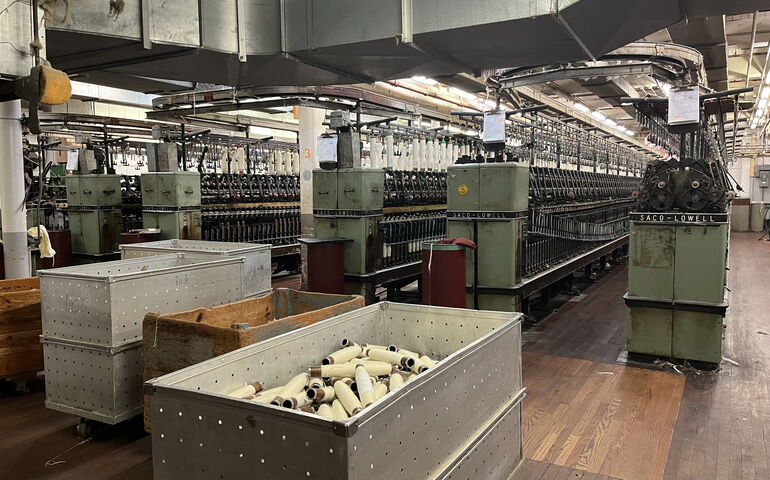 Photo / Courtesy Investcomm Commercial Group
The spinning operation dates back to the Jagger family’s arrival in Maine in the 1880s.
Photo / Courtesy Investcomm Commercial Group
The spinning operation dates back to the Jagger family’s arrival in Maine in the 1880s.
A spinning company with Maine roots dating back over a century sold its Springvale mill and warehouse to a New Hampshire developer, but holds a leaseback for continued operation.
Chinburg Properties bought 5 Water St. from Jagger Brothers LLC for $1.3 million. Cheri Bonawitz and Karen Rich of Malone Commercial Brokers represented the buyer and Suzanne McKechnie of Investcomm Commercial Group represented the seller.
The property has two industrial buildings totaling 68,000 square feet on 2.87 acres.

“My family has been in the town for a long time,” said David Jagger, the seller and the owner of Jagger Spun, a maker of worsted spun yarns. “It was very important to me that the property be sold to somebody who would have a positive impact on Springvale and I’m convinced that they’re the ideal company and that Eric is the ideal person to do that.”
Jagger continues to operate his yarn-spinning business, Jagger Spun, in a portion of the building.
Solid interest
The York County property was marketed as a well-maintained building in great working condition.
One building is an 8,800-square-foot partially heated warehouse with three overhead doors and a loading dock that’s operating as an office and warehouse. The other building is a former spinning mill and retail shop totaling 60,000 square feet on four stories.
All floors are equipped with bathrooms and heat. The building is fully sprinkled and has brick walls, hardwood floors and a cargo elevator.
“We had solid interest from several well established developers,” said McKechnie. “I am pleased to see this iconic property will continue to be part of the community and being developed for a sustainable purpose. I believe its future is in great hands.”
Origins
The worsted spun yarn operation started in southern Maine with the arrival of Uriah Jagger and his family from England in the 1880s. Uriah was a yarn spinner and had obtained employment with Goodall-Sanford Mills in Sanford.
Uriah’s sons, Samuel and Fred, incorporated as Jagger Brothers in 1906 and continued operation sat a South Sanford location until 1956, when the company moved to the neighboring town of Springvale.
Sam’s sons — Allan, Winston and Robert — purchased 5 Water St. and moved operations there.
In the late 1980s, Allan’s son, David, started Jagger Spun as a separate division to provide quality yarn for production weavers and knitters. In 2014, Jagger Spun was expanded to include retail customers worldwide.
In 2019, David closed the Jagger Brothers operation but kept open the Jagger Spun division, continuing to operate at the Water Street location with a small workforce.
Worsted yarn
Jagger Spun manufactures “worsted spun” yarns. The difference between worsted and woolen spun yarns is in the preparation, according to the company’s website.
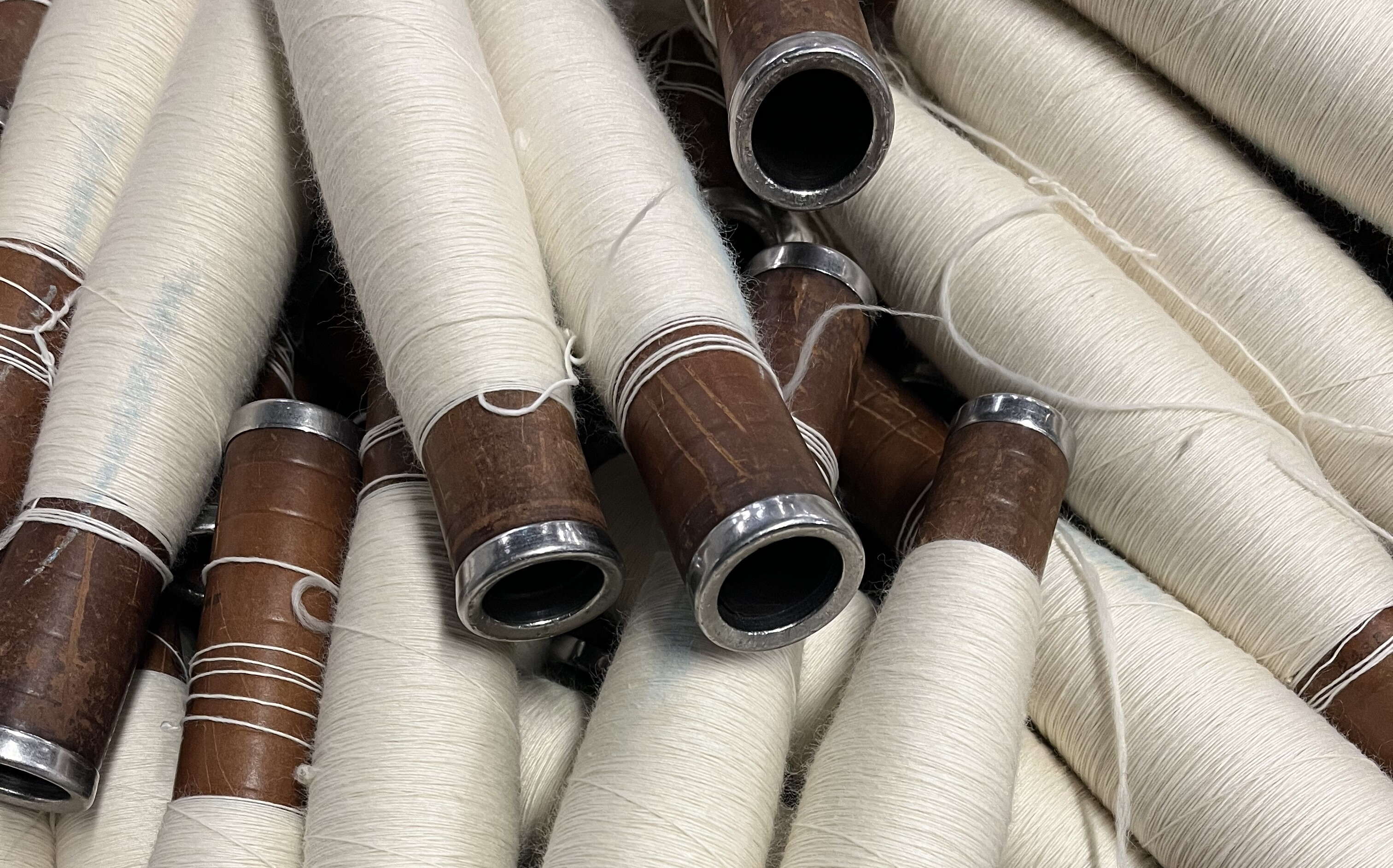
The fibers in worsted spun yarn are combed to be parallel and uniform before spinning, whereas the fiber for woolen spun yarns are more casually arranged. Because the fibers are parallel, worsted spun yarns are denser and less airy than woolen spun. Woolen spun yarns bloom more after washing and are lighter and airier. Worsted spun yarns are smoother and have better stitch definition. They are also stronger, more durable and less prone to pilling.
The Willy Wonka effect
As a kid, Jagger used to visit the Sanford mill that Sam and Fred initially operated.
“It was like visiting Willy Wonka’s chocolate factory,” he said. “It had a water wheel and all these belts that went two stories up and would drive the shafts that went the length of the building.”
The next generation — David’s father Allan and Allan’s brothers Robert and Winston — bought the mill in Springvale. David has a photo of the mill from when it still had a belfry on top. He later donated the bell to the Springvale Public Library.
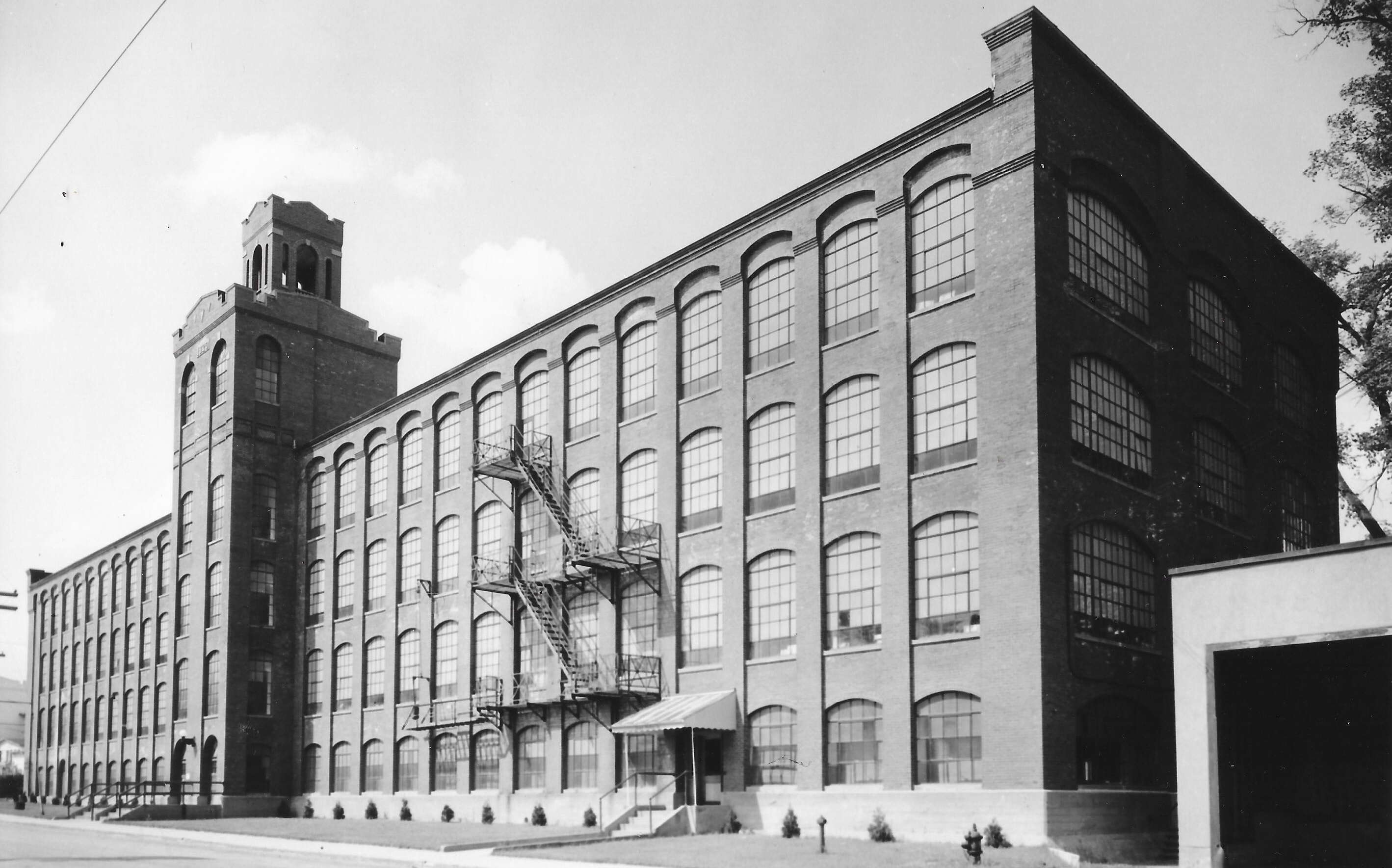
Jagger Spun was started as a specialty division for custom orders, he said. Niche items include wool/silk blends and “heather” yarn, which blends different shades.
“We were the funny little company in Maine that could do unusual things,” he said.
Experienced mill redeveloper
Development firm Chinburg Properties, of Newmarket, N.H., is owned and led by Eric Chinburg, who has over 30 years of experience saving and restoring mill buildings in Maine, New Hampshire, Massachusetts and Vermont.
Chinburg said he and his team are always on the lookout for new opportunities.
“The Jagger Mill was being marketed for sale and came to our attention through Cheri Bonawitz at Malone Commercial Brokers,” he said.
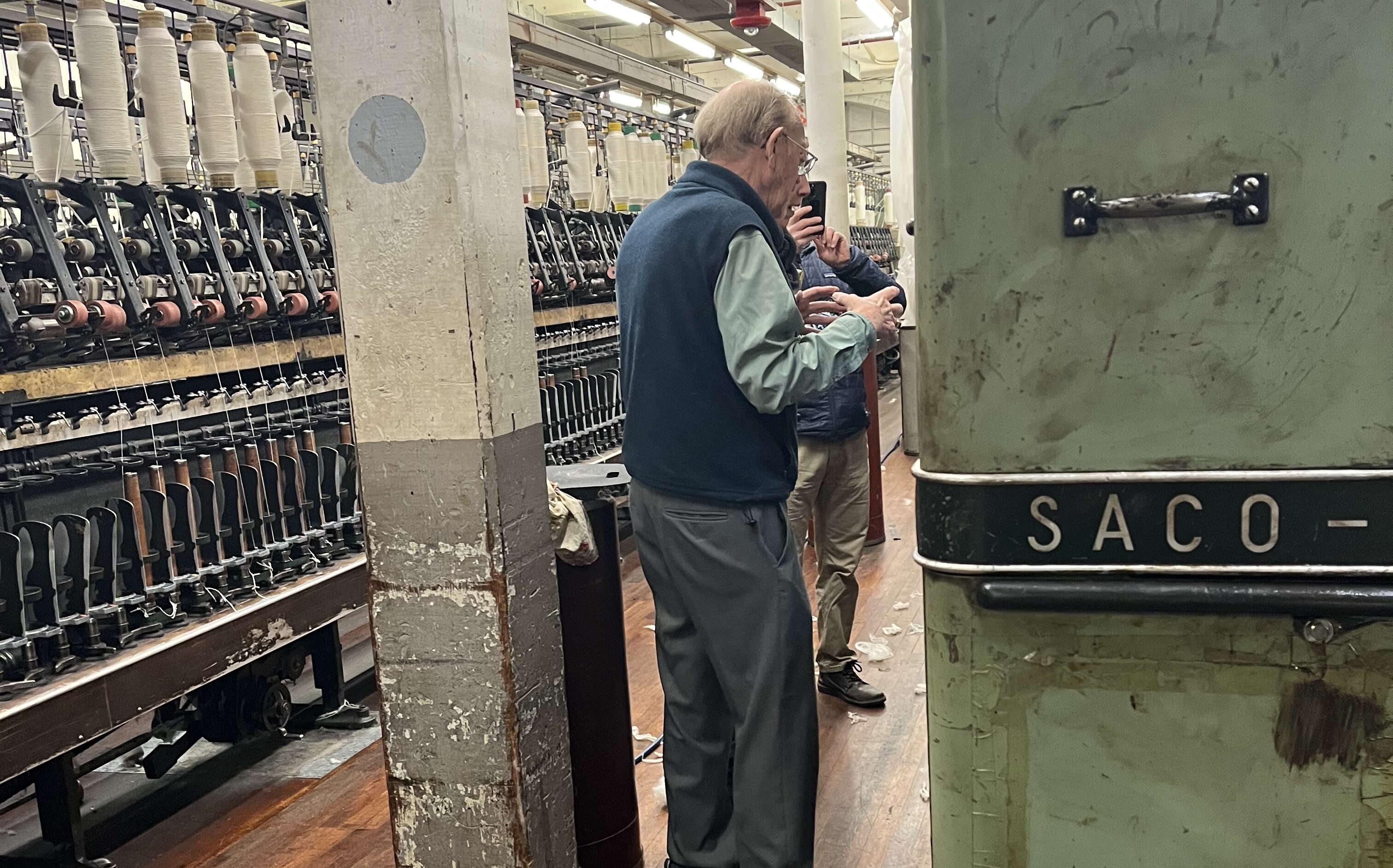
He continued, “We are very excited about the opportunity to create another special project at Jagger Mill. It is an excellent example of why we love saving historic buildings: its brick and beam construction, large factory style windows and high ceilings simply cannot be replicated with new construction.”
He noted the mill is also located in the center of Springvale, within easy walking distance to local businesses and recreation areas.
Financing for the acquisition was secured with Machias Savings Bank.
Plans for the property?
“We are looking to adaptively reuse the property into approximately 90 apartment homes while also preserving the building’s architectural and industrial character,” Chinburg said. “Any future project would be utilizing state and federal historic tax credits, which are critical to project feasibility and ensure the highest standard of historic preservation as overseen and administered by the National Park Service.:
To convert the building into housing, he added, Chinburg Properties will make “significant” investment in the property including all new windows, new building systems and new utilities, as well as significant site improvements including new storm water infrastructure and landscaping.
Said Jagger, “I’m so pleased it’s going to become housing. I couldn’t be happier.”













0 Comments